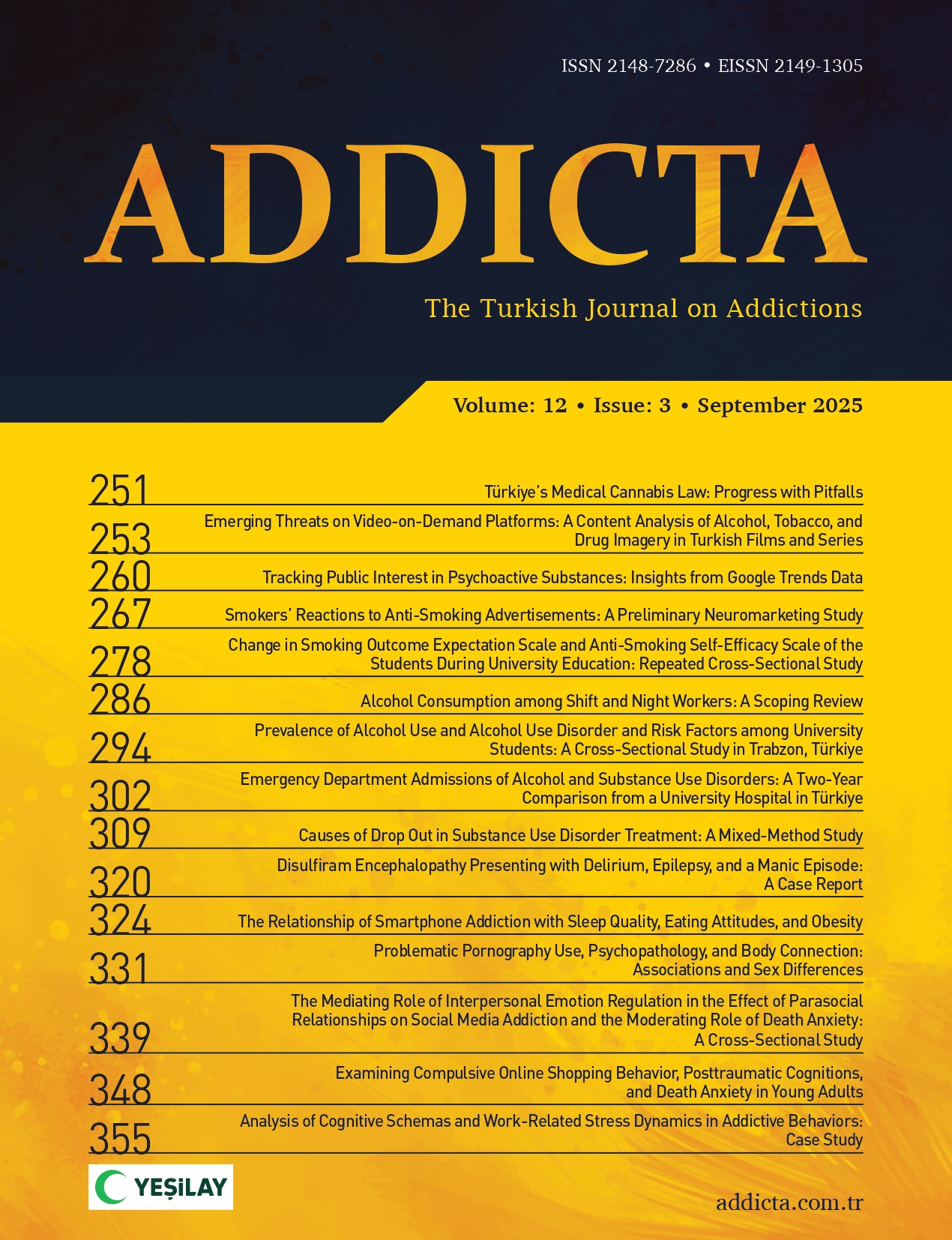Nicotine addiction is a dangerous health problem that causes illness and death worldwide. In this study, we aimed to determine the factors affecting successful smoking cessation in patients who attended a smoking cessation clinic and received pharmacotherapy with cognitive behavioral intervention. Successful smoking cessation was defined as quitting smoking for six months. Data on sociodemographic and smoking characteristics were collected from 102 patients who attended the clinic between November 2017 and February 2018 and met the inclusion criteria, including moderate to high nicotine dependency. The rate of smoking cessation was found to be 65.7% at the three-month follow-up and 47.1% at the six-month follow-up. Those who quit smoking were more likely to be older than those who did not. Working in a smoking environment was found to have a negative effect on quitting. Quit rates were significantly associated with receiving pharmacological treatment for sufficient time and the number of control interviews (p<0.05). Relapse rates at the one-year follow-up found that 11.8% and 35.3% of the patients, respectively, did not return to smoking. There was no statistically significant difference in the six-month smoking cessation rate and one-year relapse rates between Nicotine Replacement Therapy (NRT) and non-NRT treatments.Nicotine addiction is a dangerous health problem that causes illness and death worldwide. In this study, we aimed to determine the factors affecting successful smoking cessation in patients who attended a smoking cessation clinic and received pharmacotherapy with cognitive behavioral intervention. Successful smoking cessation was defined as quitting smoking for six months. Data on sociodemographic and smoking characteristics were collected from 102 patients who attended the clinic between November 2017 and February 2018 and met the inclusion criteria, including moderate to high nicotine dependency. The rate of smoking cessation was found to be 65.7% at the three-month follow-up and 47.1% at the six-month follow-up. Those who quit smoking were more likely to be older than those who did not. Working in a smoking environment was found to have a negative effect on quitting. Quit rates were significantly associated with receiving pharmacological treatment for sufficient time and the number of control interviews (p<0.05). Relapse rates at the one-year follow-up found that 11.8% and 35.3% of the patients, respectively, did not return to smoking. There was no statistically significant difference in the six-month smoking cessation rate and one-year relapse rates between Nicotine Replacement Therapy (NRT) and non-NRT treatments.
Erenköy Ruh ve Sinir Hastalıkları Hastanesi Sigara Bırakma Polikliniği Sonuçları: Bilişsel Davranışçı Müdahale ve Farmakoterapi Etkinliğinin İncelenmesi
Tütün bağımlılığı tüm dünyada hastalık ve ölümlere neden olan önemli bir sağlık sorunudur. Bu çalışmada; sigara bırakma polikliniğine başvuran ve bilişsel davranışçı müdahale ile birlikte farmakoterapi başlanan orta ve ileri derece nikotin bağımlılığı olanlarda sigara bırakma başarısını etkileyen faktörleri tespit etmeyi amaçladık. Kasım 2017-Şubat 2018 tarihleri arasında sigara bırakma polikliniğine başvuran hastaların sosyodemografik verileri ve sigara içme öykülerihasta kayıtlarından elde edildi. Orta ve ağır derecede nikotin bağımlısı olduğu saptanan ve tekrar iletişim kurulabilen 102 hasta çalışmaya dahil edildi. 3. ay sonunda genel sigara bırakma hızı %65,7 olarak, sigarayı bırakma eşiği olarak kabul edilen 6. ay sonunda ise %47,1 olarak saptandı. Sigara bırakan ve bırakamayan grup arasındaki değerlendirmede bırakanlarda bırakmayanlara göre yaşın daha fazla olduğu (p<0,05), medeni durumun bırakma başarısını etkilediği (p<0,05), sigara içilen ortamda çalışıyor olmanın sigara bırakma başarısını olumsuz yönde etkilediği (p<0,05) saptandı. Yeterli süre farmakolojik tedavi kullanılması ve hastaların kontrole gelme sayıları ile bırakma hızları anlamlı olarak artmaktaydı (p<0,05). Birinci yıl sonunda relaps oranlarına bakıldığında ise sigarayı bırakan hastaların %11,8’inin tekrar sigaraya başladığı tespit edildi. Verilen farmakoterapiler Nikotin ReplasmanTedavisi (NRT) ve Vareniklin/Bupropiyon olarak iki gruba ayrıldığında, NRT ve NRT dışı tedavilerin 6. ay ve 1. yıl sigara bırakma oranlarında istatistiksel anlamlı bir fark saptanmadığı bulundu.
To cite this article: Arpacıoğlu, S., Ünübol, B., & Bilici, R. (2019). Erenköy Ruh ve Sinir Hastalıkları Hastanesi sigara bırakma polikliniği sonuçları: Bilişsel davranışçı müdahale ve farmakoterapi etkinliğinin incelenmesi. Addicta: The Turkish Journal on Addictions, 6(4), 295-314.

.png)

.png)
.png)
